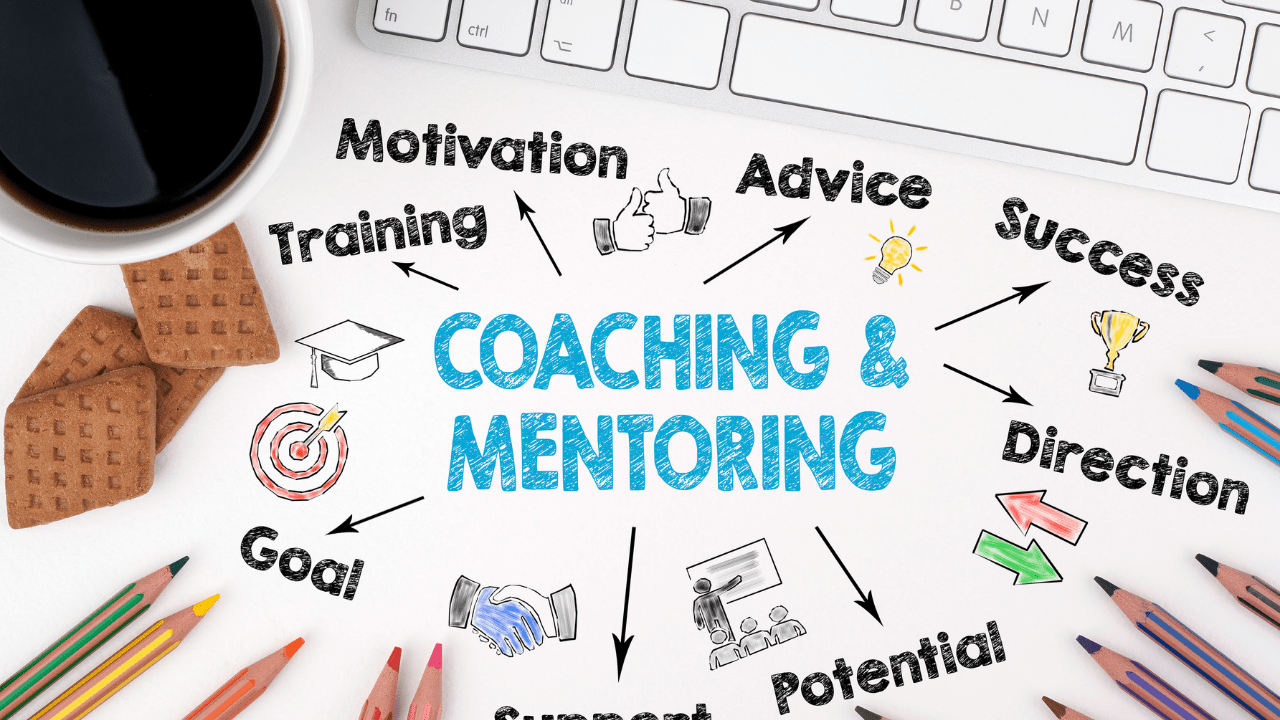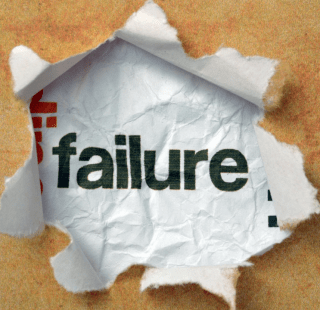Why do small businesses fail?
According to this article from fundera in the US, 20% of small businesses fail in the first year, 30% fail in the second year, 50%, make it to five years, and a whopping 70% fail in their tenth year!
Staying with the US for the moment and looking at a sector analysis, this article from National Capital Business and Services echoes the percentages above and further breaks down the failures in 2019 by sector and starting with information companies, which had a failure rate of 63%, followed by:
- Construction: 53%
- Manufacturing: 51%
- Services: 45%
- Education, health, and agriculture: 44%
- Finance and real estate: 42%
In the UK, this government article doesn’t make for pleasant reading either!
So what is going wrong?
I stopped the stats in 2019 because of the global pandemic that has shuttered many unfortunate businesses and still threatens to continue to do so as we enter 2021, but as the stats show, we were clearly in trouble before.
I am no stranger to business failure and in this article, I am going to share my views as to why I believe small and other businesses for that matter drastically reduce their chances of success and in some cases are doomed to failure before they even start.
Related:
“Business Failure: Why My First Recruitment Agency Failed.”
Why do small businesses fail?

Let me first clarify a few points with you.
I have learned more through business failure and other mistakes I have made than almost any other form of learning and it is because failure is real — it can hit you totally unexpectedly, or you can see it coming, but in either case, it forces a reaction.
Some of my best business performances have been as a result of dealing with a crisis and the outcome was not necessarily as financially profitable as say, landing a major contract with a customer, but as far as a learning experience, there are rarely any better.
As we are in a pandemic, many companies are in situations that would challenge the best business leaders on the planet and many well-known business brands have unfortunately succumbed, so we are in unprecedented times.
I look at failure as a very necessary step in the learning process and with regard to anything — I am not one of these people who is overly positive or negative about anything…I am a realist who can accept both sides of the coin, simply because over the years I have learned to think this way.
Having said that, I will always look at the positive aspects of everything, because why not?
However, I accept reality and the fact that things can turn, and often do in a heartbeat.
My thinking on business, entrepreneurship, and life, in general, has been shaped by many things and I have always looked outside of the business domain for inspiration and I have found it through talking to high-achieving professionals in martial arts, the military, music, and through educators in general — I urge you to do the same.
I will give you my views as to why I believe small businesses fail, but you must realize that they are personal to me and the experiences I have had in nearly forty years of business and life experience involving my own specific experiences and those I have had through working with and coaching others.
Preparedness

Many people enter the world of business unprepared and here, I am not talking about the more obvious preparatory issues such as having a well-researched idea, business plan, and of course, enough cash to get through the first year, but a mental preparedness that will accept the fact that working long hours is normal; you will be under more stress than you have probably had ever been through before and if it is your first business, then you will be in totally uncharted territory.
Mental resilience, toughness and call it what you want is of paramount importance and not everyone can take the view that they will never quit, no matter what — I learned to adopt this mentality through my experiences in the martial arts and through other physical experiences that served to toughen my mind at the same time.
I go much deeper into the subject of the mindset in this article:
“Growth Mindset: How to Develop a Powerful Mind.”
Research
This is an area that I severely underestimated the value of early on in my career.
Knowing your market is the tip of the iceberg and you have to go much deeper if you really want to understand what is going on in the economic world as a whole and the issues that seem to be way over your head, but nevertheless and ultimately have a huge impact on your business, no matter how small and insignificant you think your business is!
I say this to everyone I coach and mentor — learn to understand global economic and geopolitical issues and then work out how they impact your business, no matter what sector you are dealing with.

If you are running a children’s ballet school, for example, you will be dependent on disposable household income, so you need to look at the factors that can affect that.
If you are a small construction company, then you will want to ensure you have a handle on the fluctuations in raw materials such as timber, to ensure you are price competitive.
In any event, the idea is to get a handle on each and every factor that can affect your business — ultimately you can start to predict trends and that gives you an edge over your competition.
In my main technology staffing business, I needed to keep an eye on the research and development of key technologies, to prepare for the needs of the future, as well as keeping a handle on the customer pain points of the day…plus I had to look at global employment legislation as my company was delivering key experts in most countries in the world.
I started by looking at the money flow — where was the investment coming from and where was it going? Following the money is always a good idea, but then I needed to ensure that I targeted the right companies — those that were strong enough to be able to pay me for the hard effort and work I needed to put in!
Finally, I needed to deeply understand the business models that my targeted clients operated…their major challenges and pain points — not just at the time, but for the future and then I had to provide solutions for them.
Conducting deep research and forming opinions, helped me to gain a considerable advantage over my competition, plus it took my company from zero billings and operating from my apartment to a multi-million dollar global concern.
“How I Started My First Business From a Living Room in London.”
Not being sales-focussed

Sales are absolutely everything and as the saying goes — “nothing happens without a sale.”
Too many entrepreneurs and especially in the technology space are so engrossed in trying to perfect what they do before simply getting out into the market and making sales.
Luckily I come from a strong sales background and I have never really had a problem with generating revenue — in many cases, it has been the only factor that has gotten me out of trouble!
I advise every small business I coach today to make sales and selling their #1 focus and I don’t just mean by going out and wildly attacking the market — don’t forget about the research aspects and make sure you have a strategy to target the right companies and also, it is essential that you connect with your customers at the highest level.
You need to work with decision-makers.
I could talk forever about sales and please do not be put off the subject because you don’t believe you are a salesperson at heart — everyone can sell and in my opinion, is born with the ability to do so!
I go much deeper into the subject of sales in the article below:
“Sales Training: The Ultimate Guide To Help You Become A Key Influencer.”
Finance and planning
Entrepreneurs are usually always cash-strapped and many, including me, are notoriously poor at planning!
This is because, in my opinion, entrepreneurs are far more instinctive in their approach to business, as opposed to a more traditional businessman, who is far more likely to invest their time in the critical planning phase.

I have seen both approaches succeed…and fail — as an entrepreneur, I had to make the transition to being more of a businessman and many business people could do with being more entrepreneurial in their thinking!
But, the fact remains that many small businesses fail due to inadequate planning and a simple lack of cash.
If you are in the UK, then take a look at this article on business planning from the Welsh government, to help you produce a business plan.
Business plans are a sore subject with me and I have sat through many investor meetings reading elaborate business plans that simply do not address the issues of the risk factors to the business and that are overly optimistic concerning generating and collecting cash, plus I have seen many of my own plans in my early business career fail miserably!
But I have learned one thing — it is all about the quality of the research that you put in and taking an extremely cautious approach to the timing of revenue generation and more importantly…collecting the cash.
I cannot over-emphasize the importance of making sure you target the right customers from the start and that means the ones that have a need for your products and who have the ability to pay you!
One of the most critical business functions that literally links sales with finance is credit management and here is an excellent article on the subject from a company called Atradius.
You cannot start a business without the right amount of cash and funding, no matter what the so-called experts and gurus are telling you when it comes down to starting a business with little or no cash.
Most businesses fail because they are undercapitalized and that is because, for me, they have grossly underestimated the cash required to get them through the first customer payments.
I learned this the hard way and when I set up my main staffing company, I made sure that my expenses were low enough to survive until my customers would actually pay me — even though I expected customers to pay within the agreed credit terms of thirty-days, I allowed sixty for the actual cash to be physically received.
There is a huge difference between the credit terms you negotiate and the real credit period you experience, so make sure you are conservative in your approach.
Your business plan will at the very least give you a reference point to go back to if and when things go wrong.
Finally, you must not be “married” to your business, your ideas, and the outcome you are striving for — anything can and will happen and over the years I learned to be my own biggest critic.
One of the best approaches I recommend to startups today is for the owners to take the view of their competitors and to try to put themselves out of business!
It requires a change of thinking and the process is far from negative — in fact, I have seen companies radically change their approach and service offerings as a result.
Why do small businesses fail: Conclusion
I have covered a few key areas in this article and of course, there are many more.
If you pushed me for one simple reason, then I would have to say that for me, it is the mindset of the person or people behind the business.
You can learn pretty much anything thanks to the power of the Internet and the information out there — thankfully over the years, the quality of the information has improved dramatically.
But when it comes down to having the right mindset, it is purely personal as only you know your innermost fears and emotions.
Starting any business is tough…especially in today’s economic climate and also if it is your first business.
I learned how to develop a tough mindset over the years and also as a result of my life experiences and passions — you will have many of your own and the best thing I can tell you is to look at when you faced tough, challenging times and look at the factors around you at the time — what made you feel the way you did and how did you embrace those feelings?
No matter what the outcome of those challenges, you have built extremely valuable “reference points” in your mind and ones that you can use for your future learning and development…if you allow yourself!
The other factors that I have talked about are much more straightforward in terms of understanding and easily learned; it’s just about having the will to do so, plus putting in the time…especially when it comes down to conducting research.
Failure is part of learning and in all walks of life, so don’t have a fear of failing…have a fear of not de-risking the process by doing the hard work that lies behind the scenes as well as the practical work of starting and running your business.
If you need any further advice on how to improve the chances of your business success, then please don’t hesitate to get in touch.
neiljcfranklin@gmail.com
Neil Franklin

Business Failure Small Business Failure Why Do Small Businesses Fail
Last modified: January 7, 2021




